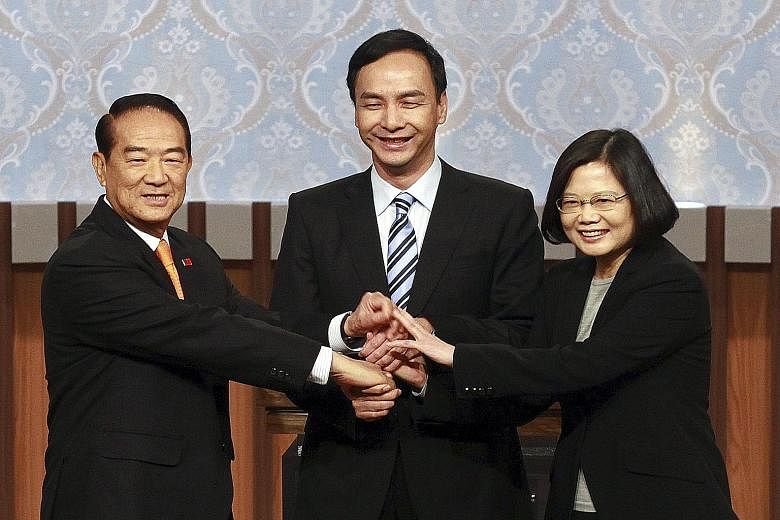Come Jan 16, Taiwan will most likely welcome its first female president and its second president from the pro-independence Democratic Progressive Party (DPP).
It could also see, for the first time, the DPP controlling both the island's executive and legislative branches - meaning Taiwan will turn an indisputable shade of green.
The triple whammy of Dr Tsai Ing-wen's likely victory makes this presidential election a milestone in Taiwan's history.
The 59-year-old is the clear front runner in a race that also includes Kuomintang chairman Eric Chu and People First Party chairman James Soong, both of whom fall in the pan-blue (or pro-unification) camp.
In particular, the election will be keenly watched for what it portends for relations with Taiwan's giant neighbour across the waters.
The first and last time a DPP leader was elected - Mr Chen Shui-bian in 2000 and 2004 - cross-strait relations deteriorated drastically.
Beijing took umbrage at Mr Chen's repudiation of the so-called 1992 Consensus, which states that there is one China but that both sides are free to interpret what that means. He later announced that Taiwan's future should be decided by a referendum, spoke of two sovereign states and said he had a mandate to push for independence.
Dr Tsai has stated that she will "push for the peaceful and stable development of cross-strait relations" in accordance with the Taiwanese people's wishes and the island's Constitution.
But she has not affirmed the 1992 Consensus, which has been the premise for warming cross-strait ties under President Ma Ying-jeou of the KMT in the past eight years.
Beijiing also views her suspiciously given her background: She first rose to prominence in 1998 when she was picked by then Taiwan President Lee Teng-hui to lead a group of legal academics to prove that Taiwan was not part of China.
If elected, Dr Tsai will become not only Taiwan's first female leader but also one of the first in the region not related or affiliated to a political family dynasty.
On the same day, the Taiwanese will vote for their legislators as well. In the island's history of elections, the pan-blue camp has never lost control of the legislature. This could change now.


